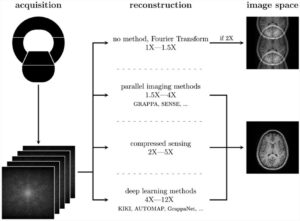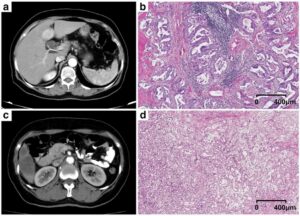This study, which included a cohort of 145 patients affected by lipomatous soft tissue tumours, aimed to compare the performances of MRI radiomic machine learning analysis with that of deep learning in order to predict malignancy in patients with lipomas oratypical lipomatous tumours. The authors were able to show that batch-effect corrected machine learning and radiomics approaches outperformed deep learning-based models.
Key points
- Machine learning (ML) applied to magnetic resonance imaging (MRI) radiomics could help to characterise malignancy of lipomatous soft tissue tumours.
- ML/radiomics analysis outperformed DL for the benign/malignant differentiation of lipomatous soft tissue tumours on MRI in a data-limited context.
- Statistical harmonisation using batch effect correction (ComBat method) improved performances when heterogeneous, multicentre data are used.
Authors: Guillaume Fradet, Reina Ayde, Hugo Bottois, Mohamed El Harchaoui, Wassef Khaled, Jean-Luc Drapé, Frank Pilleul, Amine Bouhamama, Olivier Beuf & Benjamin Leporq













